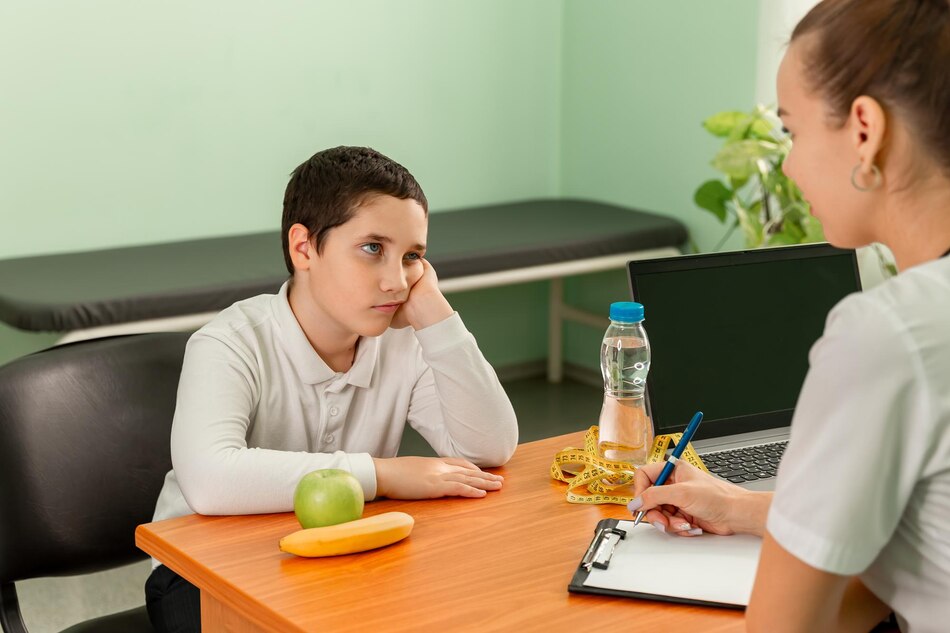Now Reading: OCD Treatment For Teens: Essential Insights Parents Must Know
-
01
OCD Treatment For Teens: Essential Insights Parents Must Know

OCD Treatment For Teens: Essential Insights Parents Must Know
Obsessive-compulsive disorder (OCD) is a mental illness that affects a lot of teenagers. It involves having unwanted thoughts and actions over and over again. These symptoms can make it hard for teens to go about their daily lives. Early detection of OCD is vital for effective OCD treatment for teens. Parents need to be involved in this process and help their teen through it. The first step in dealing with OCD in teens is to understand what causes it.
Understanding OCD In Teenagers
Teenagers with OCD have thoughts, urges or behaviors that they have over and over again. Teenagers can become obsessed with things like germs or hurting other people. Some compulsions are repeatedly washing hands or checking locks. The symptoms can make it hard to do well in school and with other people. Teenagers may have a more challenging time expressing their feelings than adults do. This could lead to confusion or the wrong diagnosis. Recognizing these symptoms early helps in seeking appropriate OCD treatment for teens.
Recognizing The Signs Of OCD
Recognizing the signs of OCD is essential for getting help that works. Early identification leads to timely OCD treatment for teens. Keep an eye out for these critical signs:
- Excessive Worry: Teens may exhibit a persistent fear of injury or contamination. It is hard to deal with this worry which often seems pointless.
- Repetitive Behaviors: Watch out for actions that you do over and over like washing your hands, checking locks or putting things in order. Most of the time these actions are caused by anxiety.
- Compulsive Thoughts: Adolescents may experience uncontrollably intrusive thoughts or images. These thoughts often cause a lot of stress.
- Time Use: Rituals for people with OCD can take a lot of time. Teens may do compulsions or avoid behaviors for hours at a time.
- Avoidance: Many people avoid things or situations that make them anxious such as specific places or things.
- Interference with Daily Life: Symptoms often make doing everyday things like school or hanging out with friends hard. The effect can be seen in many areas of life.
- Emotional Distress: Look for signs of being upset, angry or depressed. Because of the constant anxiety that comes with OCD people often have more robust emotional responses.
The Importance Of Early Intervention
Early intervention is essential in OCD treatment for teens. If OCD symptoms are found and treated right away there is a better chance of managing the condition successfully. Getting help early on can keep symptoms from getting worse which can lead to more significant problems like anxiety or depression.

Teens with OCD are often treated with a mix of therapy and medication that is specifically designed for their needs. This approach can make the disorder a lot less of a problem in their daily life. If a teen with OCD doesn’t get help right away their symptoms can get worse and complications can happen which can affect their social life, schoolwork and health.
Parents can avoid these long term problems if they act quickly to get professional help. Beneficial early involvement in OCD treatment for teens may boost outcomes and support the teen in accomplishing a better quality of life.
Read Also: IVF For Women Over 40: What You Need To Know
Treatment Options For OCD
Cognitive Behavioral Therapy (CBT):
CBT is a primary method in OCD treatment for teens. It helps them figure out their lousy thought patterns and change them. CBT lowers anxiety and helps people control compulsive behaviors by dealing with these thoughts. This therapy gives you valuable ways to deal with and lessen your OCD symptoms.
Exposure and Response Prevention (ERP):
ERP is an essential part of OCD treatment for teens. Teenagers can stop doing things they fear by slowly exposing themselves to what they fear. This method breaks the cycle of compulsive behaviors and reduces the anxiety that comes with obsessions which leads to long term improvement in managing OCD.
Medication
Selective serotonin reuptake inhibitors (SSRIs) are often given to teens who have OCD as a treatment. These drugs help keep chemicals in the brain that are linked to anxiety and obsessive thoughts in check. When combined with therapy SSRIs can effectively lessen OCD symptoms which can improve teens’ overall treatment outcomes and quality of life.
Family Therapy
Family therapy helps OCD treatment for teens by including family members in the treatment process. It helps families understand OCD and develop good ways to help their teens. This method considers how the family works and gives extra help making the treatment more effective and speeding up the teen’s progress.
Supporting Your Teen Through Treatment
Supporting your teen through OCD treatment for teens is essential for their success. Parents’ active participation and support can significantly affect the treatment process. The first step is to encourage open communication. This helps you understand the problems your teen is having and help them with their worries. Show them that you understand and are patient and acknowledge their symptoms.
Tell your teen to follow through with their treatment plan which may include going to therapy and taking their medicine. Being consistent is very important so support their commitments and routines. Taking care of setbacks well is also very important. If your teen is having trouble or is being resistant, work with them to find solutions and change your plans. Being involved and there for your teen will help them a lot as they learn to deal with their OCD.
Seeking Professional Help
Finding a qualified mental health professional is crucial for effective OCD treatment for teens. Find therapists or psychiatrists who specialize in helping teens with OCD. Please find out about their treatment history and how they handle it. Make sure they use methods shown to work like CBT and ERP. Find a professional who knows how to help teens with their specific needs. Wor is essential with experts to improve the treatment process and the outcome.
Conclusion
Teens with OCD need to be understood, help must be given early on and the right kind of support must be provided. Parents are critical when spotting symptoms and getting the proper treatment. They can help their teen deal with the problems that come with OCD by staying informed and getting involved. Therapy medication and family support are essential to effective treatment. Teenagers can deal with their symptoms and live whole lives if they take the proper steps.



















